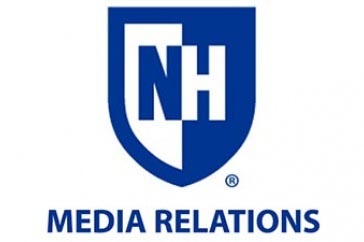UNH Research Finds N.H.’s Civic Health Strong Overall but Trust in Government Has Plummeted

Editors and Producers: An author of the 2020 N.H. Civic Health Index and other speakers will discuss the findings about New Hampshire’s pre-pandemic civic landscape and the future of the state at 1 p.m. today, March 25, 2021. Register here for a link to the Zoom event. Quixada Moore-Vissing is also available to respond to questions at qmoore-vissing@publicagenda.org.
DURHAM, N.H.—The state of New Hampshire is in good civic health, ranking higher than the national average on several key indicators such as voter turnout, volunteering, charitable giving, attending public meetings, having strong connections with family and friends, and talking with others about important political, societal or local issues, according to new research from the Carsey School of Public Policy at the University of New Hampshire and the National Conference on Citizenship.
The research also found that trust in local and national government has plummeted since 2001, the civic engagement of millennials trails other age groups and while strong overall in civic health, the state ranks in the bottom five in terms of people connecting with those of a different racial or ethnic group than their own. The research draws on data from the U.S. Census Bureau as well as the Social Capital Community Benchmarks survey.
“By studying New Hampshire’s “civic health,” we gain a pre-pandemic picture of voting habits, volunteerism, social connections and interactions with people different from ourselves,” said Quixada Moore-Vissing and Bruce Mallory, authors of the 2020 N.H. Civic Health Index. “We learn how much Granite Staters feel they matter to their communities, the barriers they face to participating in civic life and how civic education plays a role in how New Hampshire residents engage.”
The researchers found:
- N.H. residents' trust in national government has decreased from 30% in 2001 to 14% in 2019. Trust in local government, local media and in neighbors has also declined.
- N.H. residents demonstrate strong connections to friends and family but weaker connections to their neighbors/broader community.
- N.H. residents ranked low—46th in the nation—in connecting with people of a different racial, ethnic, or cultural identity than their own.
- Of all variables, education was proven to have the most relationships with civic health outcomes, indicating that education and civic health are critically intertwined.
- Millennials and other youth populations are struggling to achieve strong civic health outcomes.
- N.H. residents ranked very low compared with national averages in terms of doing favors for neighbors (40th) and helping friends or extended family with food, housing or money (45th).
“We need to address the areas where we are performing poorly at the individual, institutional systemic levels,” the researcheres said. “Finding ways to bring people together across racial, ethnic, cultural, political and social identities is critical to changing the image of our state. We recommend efforts to increase voter participation within disenfranchised groups, partnerships to increase opportunities for civic engagement and conversation, and the creation of necessary policies and practices to increase participation and engagement, but the first step needs to be a cross-sector conversation throughout the state to digest the data and identify actions to strengthen our civic health.”
The Carsey School of Public Policy is nationally recognized for research, policy education and bringing people together for thoughtful dialogue to address important societal challenges. The school develops and facilitates innovative, responsive and equitable solutions at all levels of government and in the for-profit and nonprofit sectors.
The National Conference on Citizenship is a congressionally chartered organization dedicated to strengthening civic life in America. We pursue our mission through a nationwide network of partners involved in a cutting-edge civic health initiative and our cross-sector conferences. At the core of our joint efforts is the belief that every person has the ability to help their community and country thrive. The University of New Hampshire inspires innovation and transforms lives in our state, nation and world. More than 16,000 students from all 50 states and 71 countries engage with an award-winning faculty in top-ranked programs in business, engineering, law, health and human services, liberal arts and the sciences across more than 200 programs of study. As one of the nation’s highest-performing research universities, UNH partners with NASA, NOAA, NSF and NIH, and receives more than $110 million in competitive external funding every year to further explore and define the frontiers of land, sea and space.
The University of New Hampshire inspires innovation and transforms lives in our state, nation and world. More than 16,000 students from all 50 states and 71 countries engage with an award-winning faculty in top-ranked programs in business, engineering, law, health and human services, liberal arts and the sciences across more than 200 programs of study. As one of the nation’s highest-performing research universities, UNH partners with NASA, NOAA, NSF and NIH, and receives more than $110 million in competitive external funding every year to further explore and define the frontiers of land, sea and space.
Latest News
-
June 18, 2024
-
June 18, 2024
-
May 17, 2024
-
May 14, 2024
-
May 7, 2024

















































